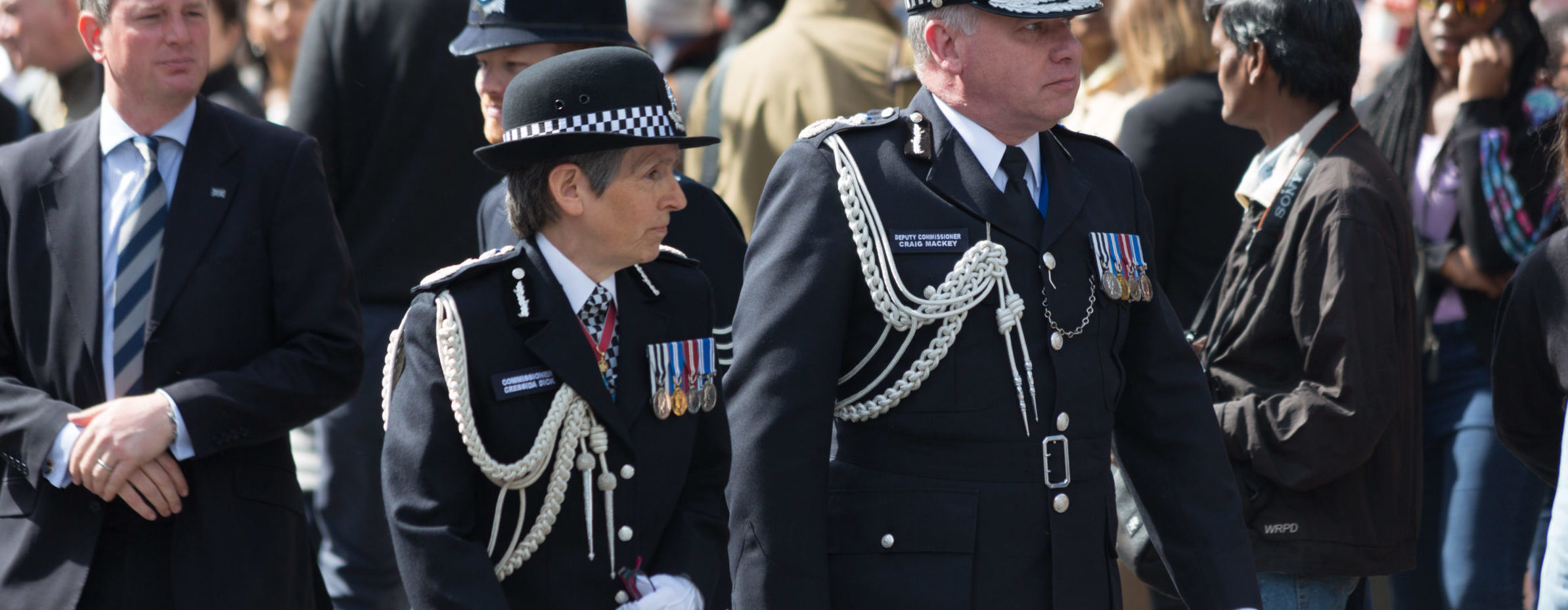The Police Are Going Backwards On Institutional Racism – And Their Most Powerful Officer is In Denial
by Ash Sarkar
1 December 2020

Nobody is getting stopped and searched because of the colour of their skin, insisted Metropolitan Police commissioner Cressida Dick in an interview with The Sunday Times this weekend.
Despite the fact that Black people are much more likely to be stopped and searched than their white counterparts in England and Wales, Dame Cressida argued that racial prejudice could not be considered a motivating factor as “it wouldn’t be right or lawful”. A curious logic: one would think a serving police officer might be able to entertain the notion that something being wrong or illegal doesn’t preclude it from happening.
It’s been over 20 years since the Macpherson report identified the existence of “institutional racism” in the Metropolitan Police, after an inquiry was launched into the force’s investigation of the murder of Stephen Lawrence. Two decades on, and it is abundantly clear that whatever progress has been made is now in retreat. Despite having worked closely in the past with senior officers who themselves were supporters of the Stephen Lawrence inquiry, these days Cressida Dick is forthright in her rejection of the idea that the police can still be called institutionally racist.
Meanwhile, advancement has stalled on the report’s recommendations regarding representation, internal culture, and outcomes. The proportion of officers from a BAME background has plateaued in recent years: if current trends persist, it would take 100 years for London’s police force to reflect the ethnic makeup of the city it’s meant to serve.
… but according to Cressida Dick, the Met aren’t institutionally racist. https://t.co/z7nAdSqqrz
— Ash Sarkar (@AyoCaesar) July 5, 2020
Between 2011 and 2018, 4,251 Metropolitan Police officers faced accusations of racism and/or racial discrimination: only 33 of those officers resigned or retired from the force following the accusations made against them. In a four-year period between 2009 and 2013, the Metropolitan Police paid out over £666,000 – mostly in out of court settlements – to settle racism claims against officers and staff. Furthermore, BAME officers within the force itself have complained that their careers have been impeded after making allegations of racial discrimination: in 2015 it was found at an employment tribunal that Scotland Yard maintained an official policy that those investigating internal grievances should not make findings of discrimination.
But even if every copshop in the city was as diverse as the neighbourhood it policed, or the Met’s internal accountability processes were fair and fit for purpose, it stretches the capacity of one’s imagination to suggest that much of a dent would be made in the stark racial disparities in policing outcomes. What’s going on in terms of street policing, charges and sentencing cannot be attributed to the underrepresentation of Black and brown faces in high places.
Since 2019, the Metropolitan Police’s use of stop and search has increased by over 50%, with Black people nine times more likely to be stopped and searched than white people, and up to 18 times more likely under Section 60 powers which don’t require reasonable suspicion. Commissioner Cressida Dick has attempted to justify the expansion of stop and search by appealing to police seizures of guns, knives and other offensive weapons. This claim, however, is frankly risible.
Only 15.3% of searches carried out by the Met in the past year have been for weapons. Far from targeting would-be violent criminals, 66.9% of Metropolitan Police searches in the past year have been for drugs, with the most common find across all police and border forces being small quantities commensurate with personal use. Over three-quarters of stop and searches result in no finds or further action at all, while a mere 4% of suspicionless searches result in an arrest.
Let us consider stop and search for what it is: a frightening experience and an invasion of personal space. In the eyes of the country’s police force and the Home Office, this incursion upon bodily autonomy is a bitter medicine for a worse social sickness. But I don’t think many of us would accept a needle in the buttocks in return for a vaccine with a 75-96% rate of failure.
According to Commissioner Dick, the racial disparities in stop and search are simply an unfortunate consequence of the overrepresentation of young Black men in criminal activity: “We are targeting young people who are likely to be carrying knives and guns and drugs, we’re in among the drug markets and what it means is, overall, a higher proportion of young Black lads being stopped than white lads.”
But by anyone’s measure, the expansion of stop and search has not resulted in a proportionate increase in public safety – the Met’s own data suggests that a 10% increase in stop and search could only expect to yield a 0.1% reduction in violent crime.
Cressida Dick’s claim that nobody is being stopped and searched because of the colour of their skin is a gross insult to the public’s intelligence. More than that, however, her comments reveal the depth of the regression amongst police leadership since the release of the Macpherson report.
The Metropolitan Police, at this point in time, does not consider racial disparities produced by discredited tactics to be an indicator of discriminatory practice. But what else could explain the enduring commitment to stop and search – a practice which has failed to keep the public safe, and succeeded in nothing but corroding the covenant of trust which ought to exist between the state and those whom it serves? Diversity and inclusion initiatives at the top cannot fix the Met’s institutional racism problem: it must start with a complete overhaul of street policing.
Ash Sarkar is a contributing editor at Novara Media.